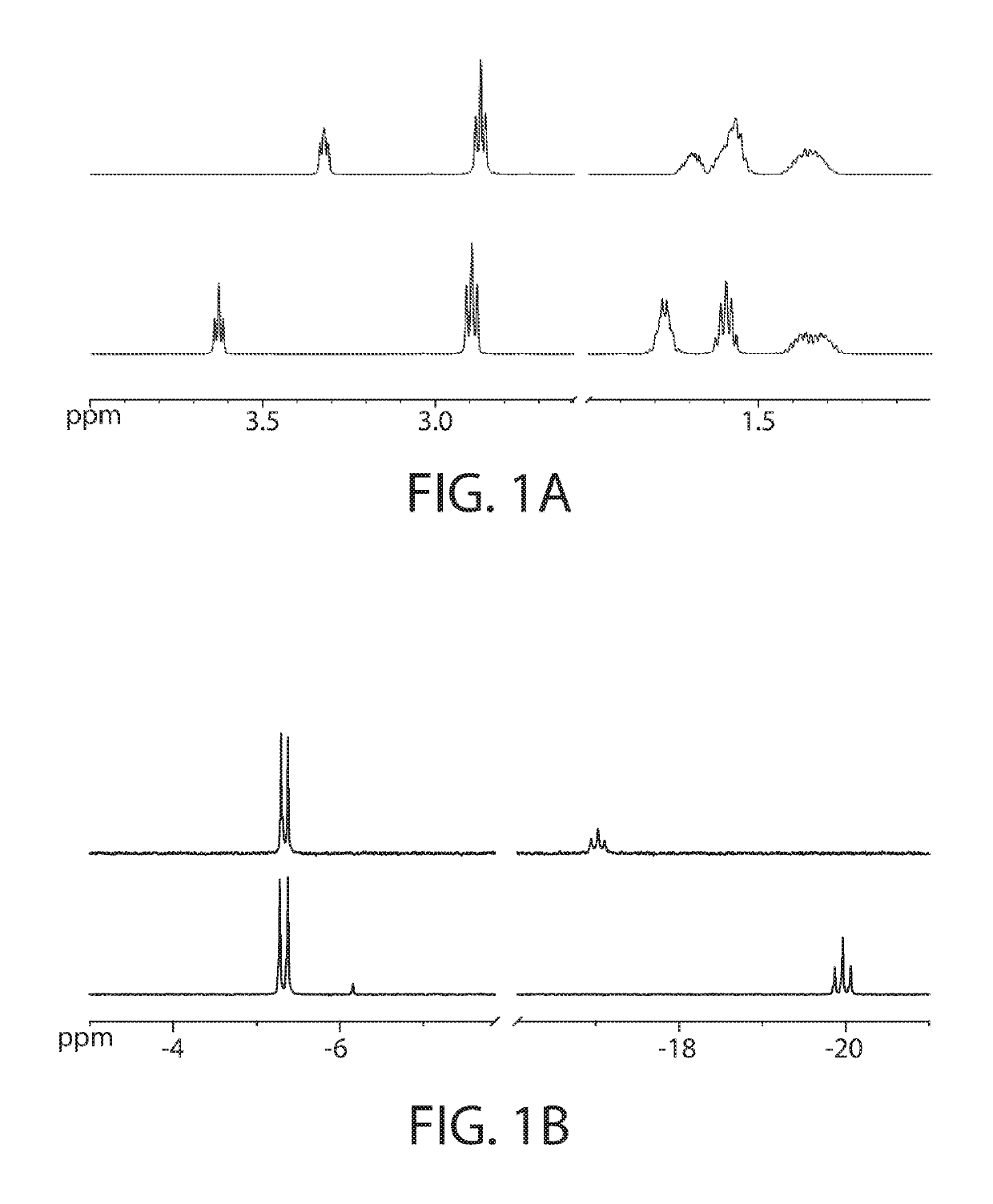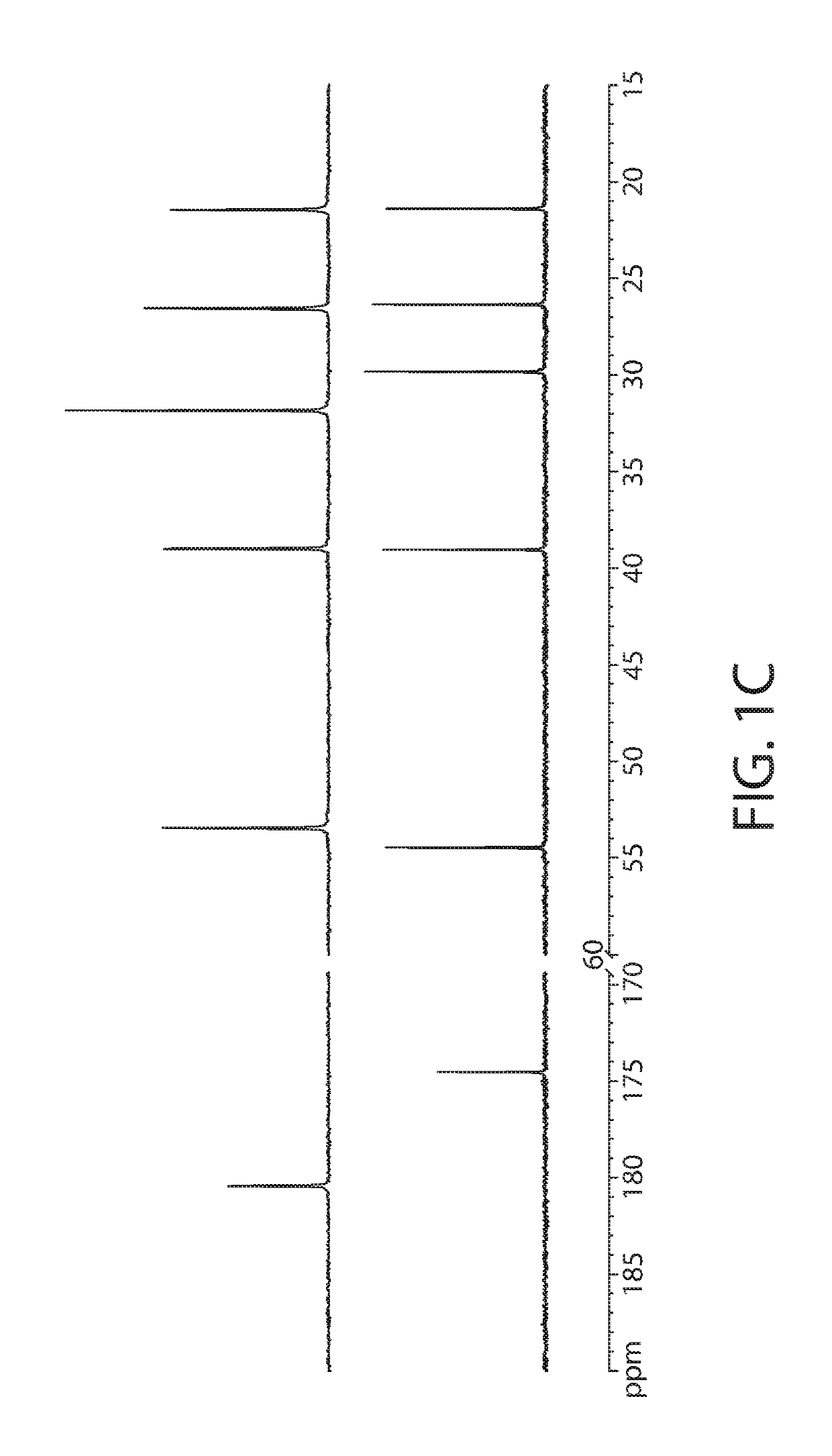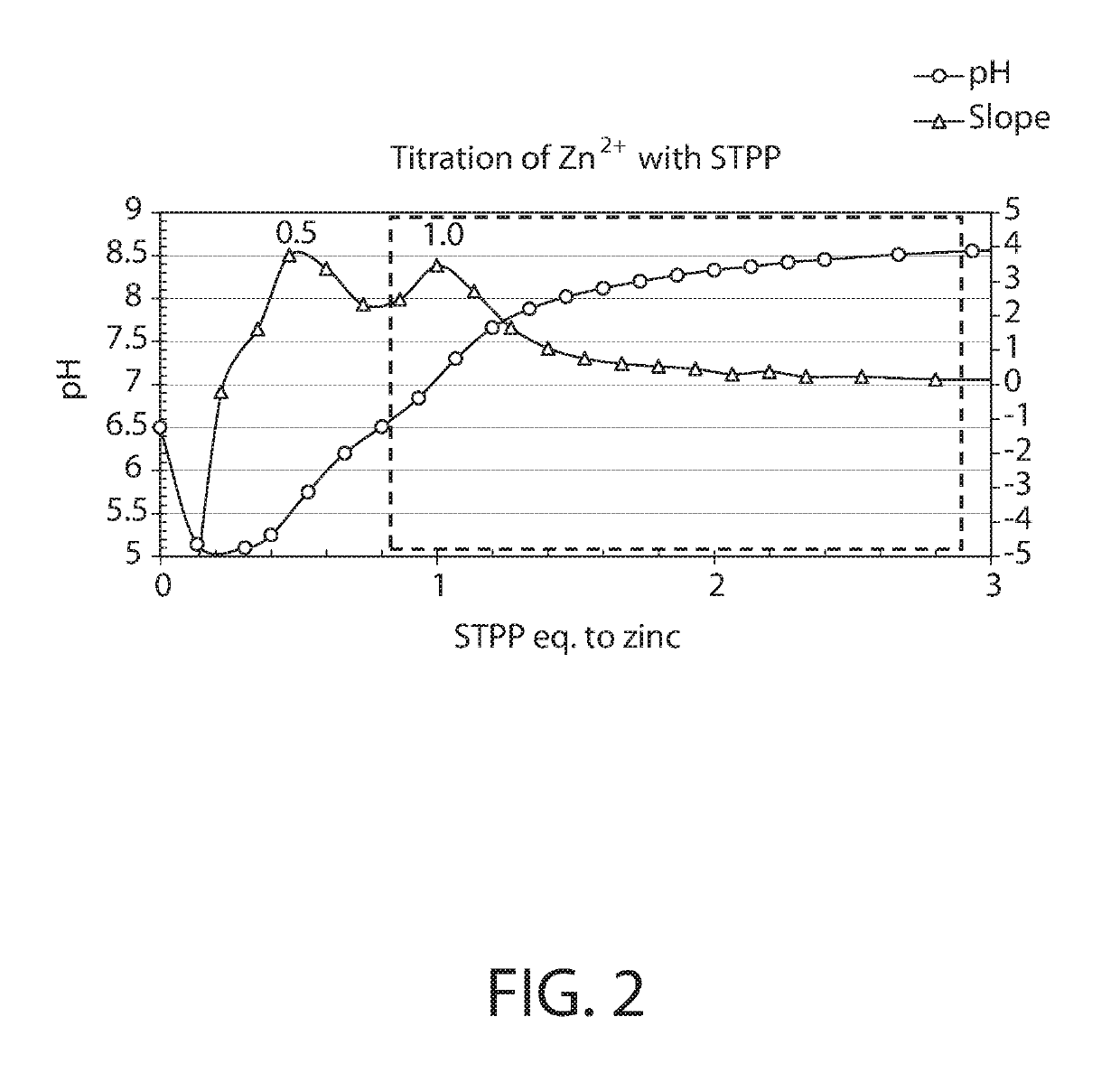Zinc-amino acid-tripolyphosphate complexes
a technology of zinc-amino acid and complexes, applied in the field of zinc-amino acid-tripolyphosphate complexes, can solve the problems of poor foaming and cleaning, poor taste and mouthfeel, poor fluoride delivery, etc., and achieve the effects of reducing bacterial colonization and biofilm development, reducing bacterial colonization and body odor, and efficient zinc delivery
- Summary
- Abstract
- Description
- Claims
- Application Information
AI Technical Summary
Benefits of technology
Problems solved by technology
Method used
Image
Examples
example 1
Synthesis of ZLP Complex
[0118]The general reaction for formation of ZLP is as follows:
ZnO+Lysine.HCl+Na5P3O10—>[Zn(Lysine)(Na4P3O10)]+Cl−(ZLP)
About 6.0 g of lysine hydrochloride is dissolved in 250 ml distilled water with stirring at room temperature. About 12.0 g sodium tripolyphosphate pentabasic is added with stirring, followed by either 50% aqueous sodium hydroxide solution or concentrated hydrochloric acid solution to adjust the pH to either 5, 6, 7, 8, 9 or 10. To the resulting solution, about 2.68 g of zinc oxide is slowly added. The mixture is then allowed to stir at either room temperature, 50° C. or 80° C., for 2 hours. The reaction is monitored by liquid chromatography-mass spectrometry (LC-MS, using electrospray ionization-tandem mass spectrometer running positive ion mode). LC separation is achieved on Agilent Zorbax SB-Aq column (2.1 mm i.d.×50 mm, 3.5 μm particle size), running 5% water / methanol at 70 μL / minute with 1 μL injection volume.
[0119]Apparent yield of the ZL...
example 2
Toothpaste Composition Comprising ZLP Complex
[0125]A toothpaste composition comprising 7.25 wt % purified ZLP is prepared according to the formula shown in Table 1. The composition comprises 0.85% by weight zinc.
[0126]
TABLE 1IngredientsWt %Sodium carboxymethyl cellulose0.65Polyethylene glycol 3%Sorbitol, 70% Aq. Soln.50%Distilled waterQ.S.Sodium Fluoride0.24High Cleaning Silica10Abrasive Silica10Thickening Silica2.75Sodium Lauryl Sulfate1.5Cocamidopropylbetaine1.25Flavors / Colors / Sweeteners1.50ZLP Complex7.25Total100
example 3
Stability of ZLP Complex
[0127]Dilution experiment: A solution of ZLP in distilled water at a concentration of 200 mg / mL (23.6 wt % zinc) is prepared. For comparison, a solution of zinc-lysine-chloride complex (ZLC) ([Zn(lysine)2Cl]Cl) is prepared at a concentration of 185 mg / mL. Both solutions are diluted with water at ratios from 1:2 to 1:16. It is found that for the ZLP solution, no precipitation occurs at any dilution, demonstrating the stability of the ZLP complex in solution. In contrast, at dilutions of 1:8 to 1:16 the ZLC complex shows significant precipitation of insoluble material. In addition, the undiluted ZLP solution is stored at room temperature for one month, followed by repeat LC-MS analysis, and it is found that the LC-MS spectrum has not changed from that obtained initially.
[0128]Foaming experiment: A solution of ZLP in distilled water at a concentration of 7.25 wt % (0.85 wt % zinc) containing also 2 wt % of sodium lauryl sulfate is compared to a solution of ZLC a...
PUM
| Property | Measurement | Unit |
|---|---|---|
| temperature | aaaaa | aaaaa |
| temperature | aaaaa | aaaaa |
| temperature | aaaaa | aaaaa |
Abstract
Description
Claims
Application Information
 Login to View More
Login to View More - R&D
- Intellectual Property
- Life Sciences
- Materials
- Tech Scout
- Unparalleled Data Quality
- Higher Quality Content
- 60% Fewer Hallucinations
Browse by: Latest US Patents, China's latest patents, Technical Efficacy Thesaurus, Application Domain, Technology Topic, Popular Technical Reports.
© 2025 PatSnap. All rights reserved.Legal|Privacy policy|Modern Slavery Act Transparency Statement|Sitemap|About US| Contact US: help@patsnap.com



